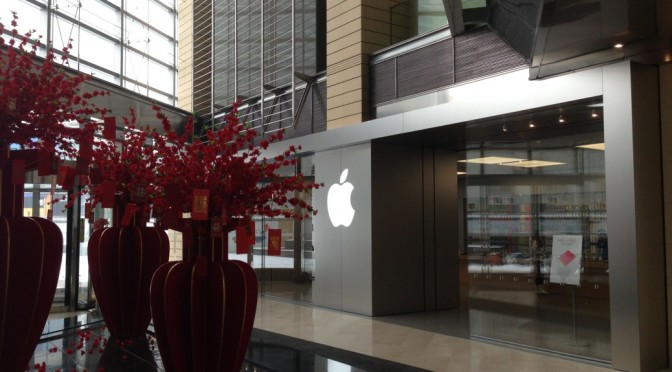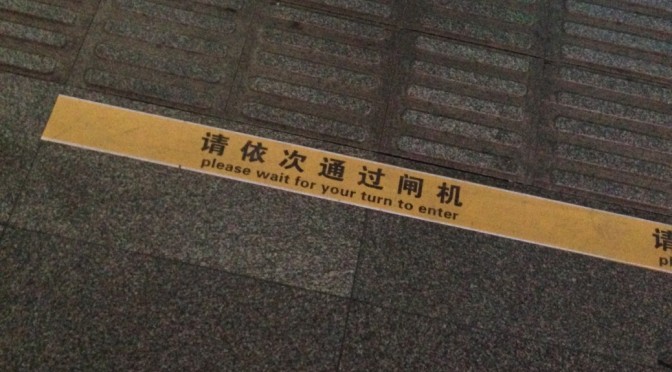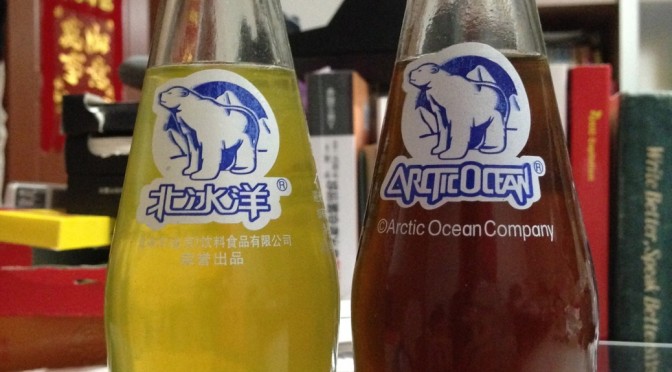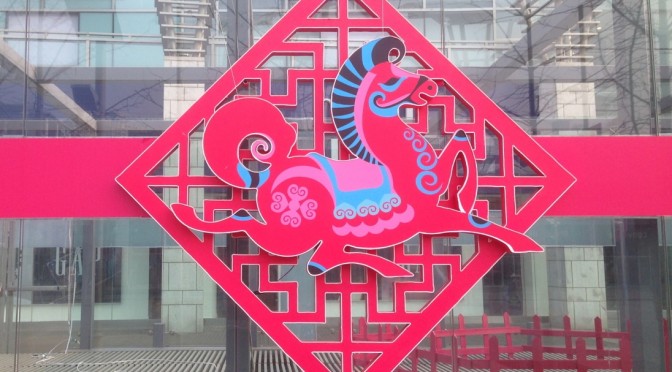All change, please!
This post has been updated and is now on a new version of this site.
This notice will remain online until 20 September 2016.
All change, please!
This post has been updated and is now on a new version of this site.
This notice will remain online until 20 September 2016.

All change, please!
This post has been updated and is now on a new version of this site.
This notice will remain online until 20 September 2016.

All change, please!
This post has been updated and is now on a new version of this site.
This notice will remain online until 20 September 2016.
The Chinese Weibo and, indeed, social media world, has been taken by storm by the invention of the Long Weibo (長微博, chang wei bo). In essence, you can think of this as a super-long tweet as a graphic attached to a post on Weibo.
Try as you might — in particular super-long Long Weibos (pardon the pun) won’t work on Twitter. I tried one where we had this super-long pic of the Shanghai Metro connections out of Hongqiao station being posted on Twitter. In essence the thing was too long, waaayy too slim (width-wise), and of too poor a resolution once uploaded — not even investing in a massive microscope would’ve done the deal.
Long Weibos are a big thing in China. First, especially if you create them on your own (without going through an “official Long Weibo maker”, you can post just about anything you want, including stuff that might have Zhongnanhai s@—#ting bricks (excuse me please). A text post is always checked by an “e-censor”; if it’s problematic with the CCP, you simply can’t post unless you mod the text — by, for example, inserting dashes, just-li-k-e-th-i-s — so you dodge the censors. With a graphic Long Weibo (I didn’t mean it that way), you can indeed post anything — including graphic content (ahem).
Second, you can make the thing as long as you want. You can spend minutes, even hours, going through a Long Weibo, if you’re so inclined. Even the Chinese Communist Party’s official news system makes extensive use of Long Weibos, where text and pics co-exist “in a perfectly harmonious e-society” (so to speak).
Probably because of these two reasons, Long Weibos have taken on a life of its own. Weibo’s deep-seated integration of pictures (and because the Weibo repost mechanism preserves Long Weibos in the original post, if there is one) makes these things popular — actually, popular here might be too weak a word. They also work great on WeChat (although WeChat supports super-long text-based entries as well), so you can easily take a Long Weibo from Weibo (see where I’m getting at?) to WeChat. It worked great for me; I get Likes and Comments all the same, be it a Long Weibo-included post on Weibo or WeChat.
As a result, because Long Weibos are content-rich, they qualify for a blog article in their own right (including those that contain nothing but cutesy kitty pics, which has long been a favourite of Shanghai Rail’s official Weibo account). Beginning in a few days’ time, you’ll soon see the text of what used to be (solely) Long Weibos appear here on my site — and you can spot them easily, as they’ll be in the Long Weibo category. I’ll try to translate stuff that started out life originally in Chinese as well.
This Long Weibo thing can get quite addicting. To the world outside of China, Long Weibos probably aren’t documented that well. If there was an e-samzidat, of kinds, in e-China, Long Weibos might have provided the first such platform for these…

Despite my increased presence outside of Beijing this year, as a plan to explore this weird, at times wild, but always wonderful world of ours, I’m still involved in improving railway English for China’s railway system for 2014, and I’ll keep my “non-rail” identity (as in: not working as an official member of rail staff), as I’ve done so in 2013 and in initial efforts back in 2012.
I have to say that China’s railway system has remained mixed with regards to the English enhancement programme. On the one hand, I suspect those who drafted out earlier versions certainly aren’t pleased at their “hard work” being wiped out by a non-PRC citizen interested in pro bono enhancements to society, and the dispute over “Should we call Qingdao’s new station “Qingdaobei” or Qingdao North?” is still at times unsettled. On the other hand, though, we are seeing much improved English at an increasing number of stations around China — customers are now told to “please allow passengers more space” at ticket officers, and riders are being told at Ji’nan’s west station that “international passengers must book at manned counters” (instead of previously no English at all; although even here I suspect the English can still be improved further).
For 2014, these are my goals, which are slightly less on “new features” and more on “maintenance and sustainability”:—
The idea behind this is: once the whole system is set up, at least for the immediate-short term, it really doesn’t matter where I’m based: everything’s Internet-based, so it doesn’t matter as much if I’m in Beijing, Bristol, or Boston.

All change, please!
This post has been updated and is now on a new version of this site.
This notice will remain online until 20 September 2016.

All change, please!
This post has been updated and is now on a new version of this site.
This notice will remain online until 20 September 2016.
All change, please!
This post has been updated and is now on a new version of this site.
This notice will remain online until 20 September 2016.
Most of us thought that the year 2008 would be the start of a newer-still New China (as in: PRC). Increased openness, the removal of cyberblocks, and the introduction of the world’s fastest rail service. For a moment, we thought that we had left everything negative behind us.
In 2009, things started being a little bit more different. It looked like the authorities would start clamping down on things a little bit more, but this was Chinese National Day — at 60. (You had to let it Party, so to speak.) But lately, things have been going a little south. It looks like the dream has been downsized, as more negative news seep out, new trunk lines get downgraded, and curricula changed — often for the worse.
Leftist nationalism is one of the more scarier parts of Chinese society these days. It’s not just about replacing English with pinyin or dumping English altogether. It’s about rejecting things that are valued elsewhere — and it’s not (just) “universal values”. There is increased scepticism towards the West (but let’s be fair — they’ve their problems as well). In the world we’re in right now, there is an excess — I’d say a crass excess — of negativity. It’s not just about wars, bombs, repression and stuff like that. The overall atmosphere is increasingly down.
It all comes at an interesting time. In 1978, Deng Xiaoping took the wraps off major reforms that ended Mao’s repression in the form of the Cultural Revolution. In 2013, Xi Jinping unveiled similarly drastic reforms. The reforms are there. We shouldn’t be closing down any further. It’s not that much of a good idea to let narrow-minded people ruin the show “just because they think they are saving China”. China is saved by means of being brave and doing things in new ways. The Republic was a radical departure from the dynasties, and 1978 was a huge departure from what was then a “really” Red China pre-1978.
Will 2014 be the start of yet a newer-still-than-newer-still China?
The word ente has two meanings (as far as I know — and hey, I don’t know all the languages in the world!):—
and I’d like to use the Italian version of the word ente whilst keeping it in a German phrase. So instead of it meaning A good duck makes everyone happy (a rather cheeky slogan in an ad for toilet cleaner — the classic Toilet Duck), I’d like to completely remix it and give it “new meaning”: Feeling good makes everyone happy.
Don’t you hate it when decalinguals drive you up the wall?
The year 2013 is drawing to a close. Whilst happy for what has been a moderate year, I’m willing to take things to the next level in the forthcoming year. For once I am announcing that I will no longer be spending the entire year — that is, over 80% — in Beijing.
I am looking “back to Europe” for a first destination outside of Asia. It is true that Beijing’s Subway system is longer and more modern than London’s variant. It’s no secret that Swiss trains run about 50% slower than their Chinese counterpart. But after nearly 15 years on the ground in Beijing, it’s probably time to take a trip — at least a comparatively longer one (30+ days or so) — into a foreign land. The last time I left home for over 30 days was in 1999. I used to live in Zürich, so heading to Beijing was heading “out” of my (Swiss) home.
Most people have less-than-positive views about the United States. I’m not one of these — although prefer when sitting at the Starbucks that the guy next to me didn’t have something “unharmonious”. So far I’ve been to only 4 US states (NY, VA — for Dulles Int’l Airport, and FL as well as CA) and the District of Columbia. That’s nothing. Somewhere down the line, I’d like to give North America a bit more attention. If anything, I’d like to do Wyoming, if it was only to be in a state which was completely square. (To a Swiss / Chinese, where no canton / province is 100% square, that must be a “new” experience.) And probably Route 66 as well. Or Amtrak across the country…
I admit there are a few destinations on the “wrong” side of the world I am missing: South Africa, Brazil, Argentina, and New Zealand. I need these, and I also need a trek with Train K3 via Ulaanbaatar straight to Moscow. I should also probably test drive Train T5 to Hanoi, if only to travel in China’s only long-distance international service with the national emblem over a train in blue (others have the emblem over a train in green).
The other day, I did a pretty scary calculation of my total mileage: over a million kilometres, and just a bit short of a million miles. I’m thinking of both converting these into media / information platform shows (blogs included) and adding more to the meter. It’s about a trip-and-a-half to the moon and back. I’m still in my early 30s. I need more miles.
In China, there’s a saying: you need to read both thousands of books and have travelled thousands of miles. I’ve done the latter. 2014 might also be the time when I do a bit more of the former…
The new year, no matter how it starts or where I might start 2015, will be one I’m going to get pretty excited about. Stay tuned…